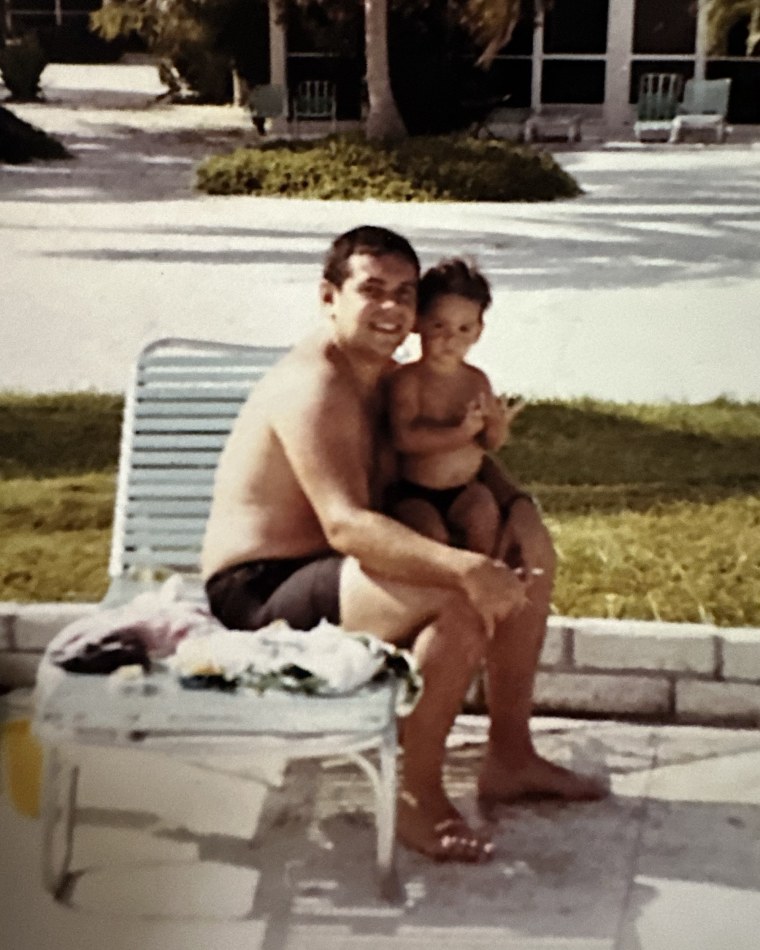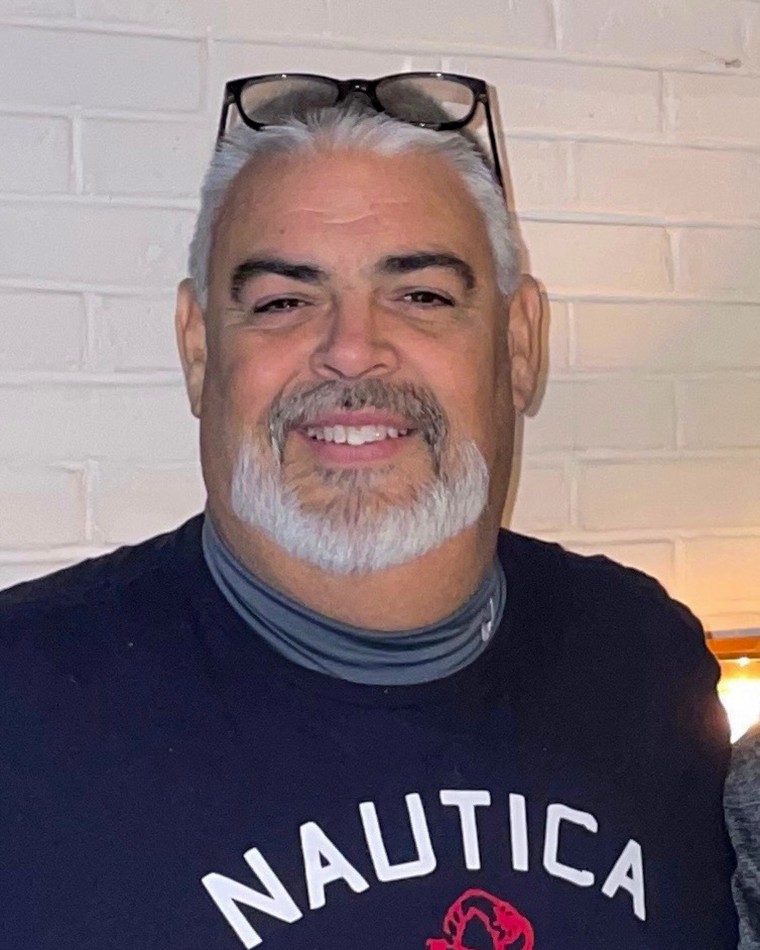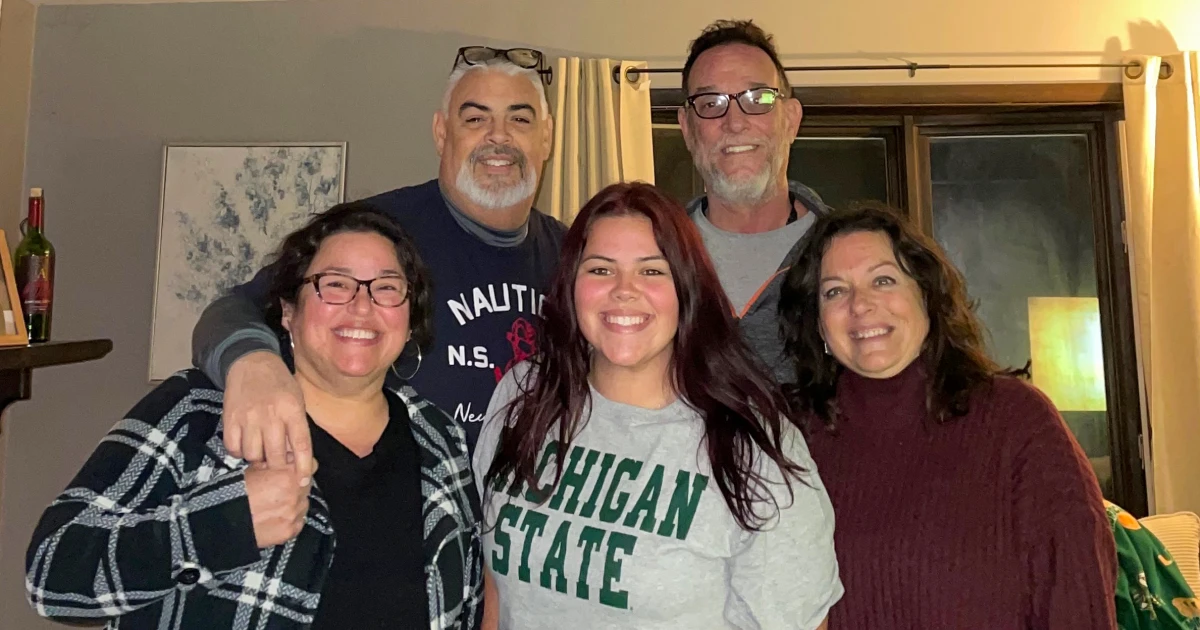Ricardo and Robert Morales parted ways in 1982 after a gunshot killed their father, a Cuban-American exile turned CIA informant in Miami known as “Monkey,” and tore their family apart.
It took over three decades for the brothers to reconnect after finding each other online. But on Thursday, a second gunshot divided the brothers for good.
Robert, 57, was one of the two people killed in a shooting at Florida State University’s campus in Tallahassee, according to Ricardo. Five others were injured by gunshots.
“It’s just eating me up inside that this is the way people in my family are going out,” Ricardo, 61, who lives in Michigan, said. “He was such a good person. He didn’t deserve that.”
Robert was working as FSU’s dining coordinator and worked in the student union center, where police say the 20-year-old Phoenix Ikner opened fire around noon.
The brothers grew up hundreds of miles south of Tallahassee, in Miami. While they were raised by different mothers and lived in separate households, the two remained close as kids.

Robert Morales as a child with his father, Ricardo Morales Sr.Courtesy Ricardo Morales Jr.
“He remembers more than I do, that I taught him karate when we were little, when we were like 12 or something,” Robert said. “He remembers it vividly.”
“It was the first memory he remembered telling me when we saw each other again after years,” he added.
Their father, Ricardo Morales Sr. — known in Miami media as “Monkey” — was an anti-Castro militant, counter-intelligence chief for Venezuela, FBI, CIA and Miami police informant and drug dealer, according to archived news articles on the CIA’s website. Morales Sr. was portrayed in the Netflix series “Griselda,” inspired by the true story of Colombian drug trafficker Griselda Blanco, starring Sofía Vergara.
Morales Sr.’s life around crime and counterintelligence ultimately led up to his own killing, according to the old news clips.
In December of 1982, Morales Sr. was shot in the back of the head in a bar brawl in Miami, which started because he thought someone called him a gay slur in Spanish, according to the CIA.
Ricardo said his father’s death caused the family to splinter off throughout the country, as they feared retaliation from his father’s long list of powerful friends and enemies.
“We separated after my dad died because the family scattered to the winds,” Ricardo said. “And back then, there was no internet or anything.”
Robert went to FSU and graduated with a bachelor’s degree in criminology, according to his LinkedIn profile. Over the last decade, he’d been working at the university as its dining coordinator. Ricardo said that although he went to FSU and worked at the university, he was actually a University of Miami Hurricanes fan.
“He rooted for them second, because he had to,” Ricardo said of FSU. “But they knew deep down inside, he was a Hurricane.”
In his free time, Robert coached high school football in Tallahassee. On Friday, the Leon High School Athletics Department called Robert a “beloved member of the athletic community.”
“His commitment to the game and shaping the lives of his players extended far beyond the field,” the department said in a statement. “He was a trusted coach, respected colleague, and a cherished friend to many.”
Seven years ago, after separately rebuilding their lives away from their father’s past of criminality in Miami, Ricardo said Robert found his brother on Twitter.

Robert Morales.Courtesy Ricardo Morales Jr.
“I was tweeting about something, and he goes, ‘Hey, I think you’re my brother,'” Ricardo recalled. “I asked him what his dad’s name was, and he told me his dad’s name and I go ‘Yeah, you’re my brother! How you doing?’ That’s how we reconnected the friendship.'”
The brothers began speaking on the phone daily. Robert, his wife, and only daughter also began making regular trips to visit Ricardo, his wife, and daughter in Michigan.
On Thursday, Robert said his daughter was on a flight to visit her cousin, Ricardo’s daughter, in Minneapolis when Ricardo was killed.
“He was a big teddy bear. He was a huge guy, but very, very soft,” Ricardo said. “And I just love that he was a great father.”
“He loved his daughter so much, his family,” he added. “He was a family man through and through.”
Ricardo said his brother was suffering from a loss of kidney function and received a kidney transplant two years ago. The transplant recently failed.
“He’d been doing dialysis three days a week to survive, to stay alive, fighting to stay alive for his family, and waiting for that next kidney that was hopefully going to come,” Ricardo said. “And then this happens.”
Given his condition, Ricardo said he tried encouraging his brother to quit his job and collect disability. But his brother insisted that the job kept his mind off his ailing health.
“He liked to be around the kids, made sure they were getting what they needed,” he said. “And he loved his job. That’s why he was there.”
It is unclear how Robert ultimately crossed paths with Ikner on Thursday. Ricardo said that as of Thursday evening, he had not been briefed by authorities in Florida, though other family members had.
Officials identified Ikner, 20, as the suspect in the shooting and revealed he is the stepson of a sheriff’s deputy who had access to one of her weapons. Police did not identify a motive.
Ikner was an FSU student and classmates told NBC News that he harbored white supremacist views.
Ricardo said that while he is “all for the Second Amendment,” he hopes for some gun reform to help limit the carnage that has long plagued his family.
However, he’s not hopeful.
“I don’t believe anything will come of this. You can quote me on that one,” he said. “We would love for the world to go in the direction of caring about people over money and business, because this is where this problem comes from, trying to make a buck.”
